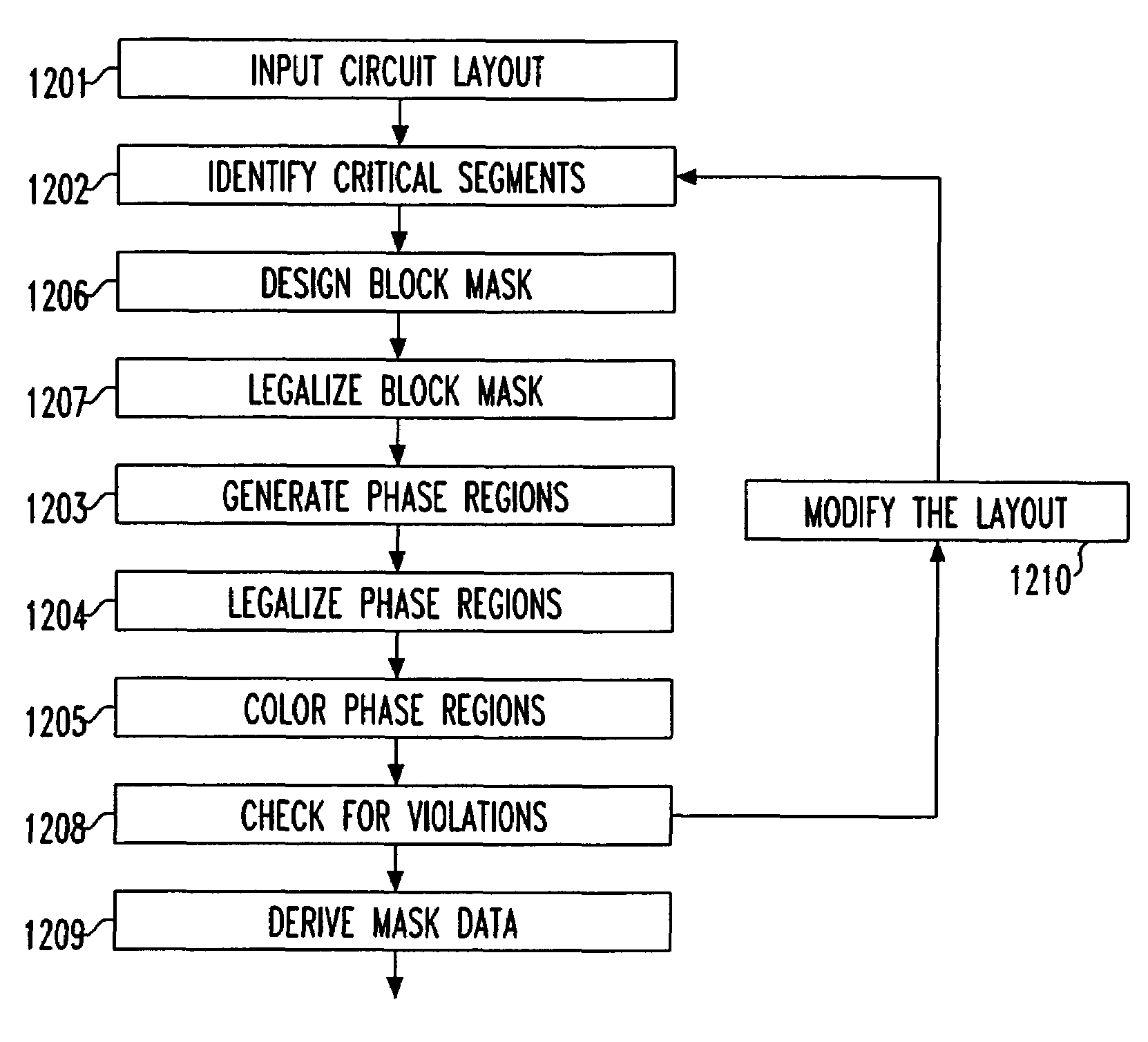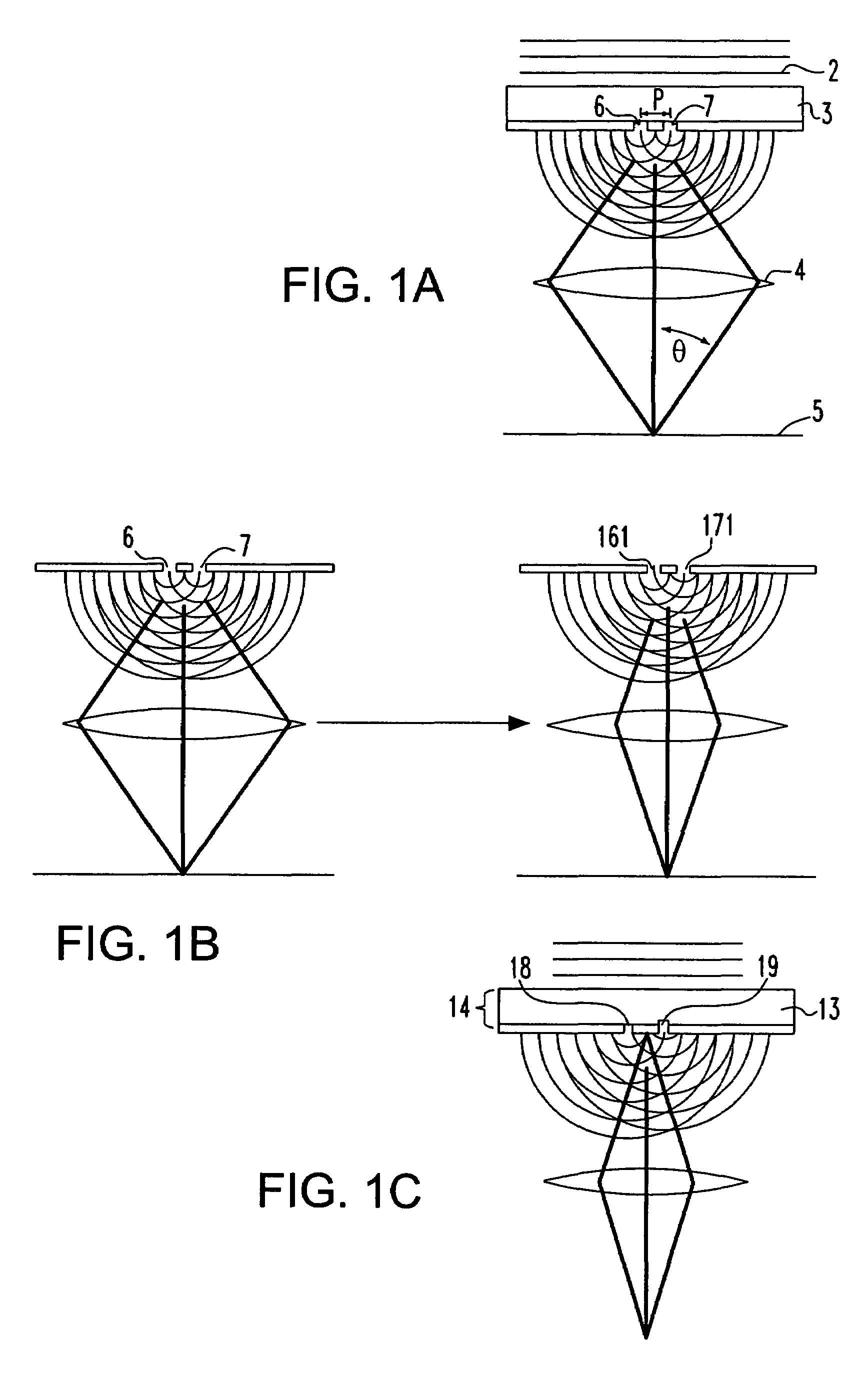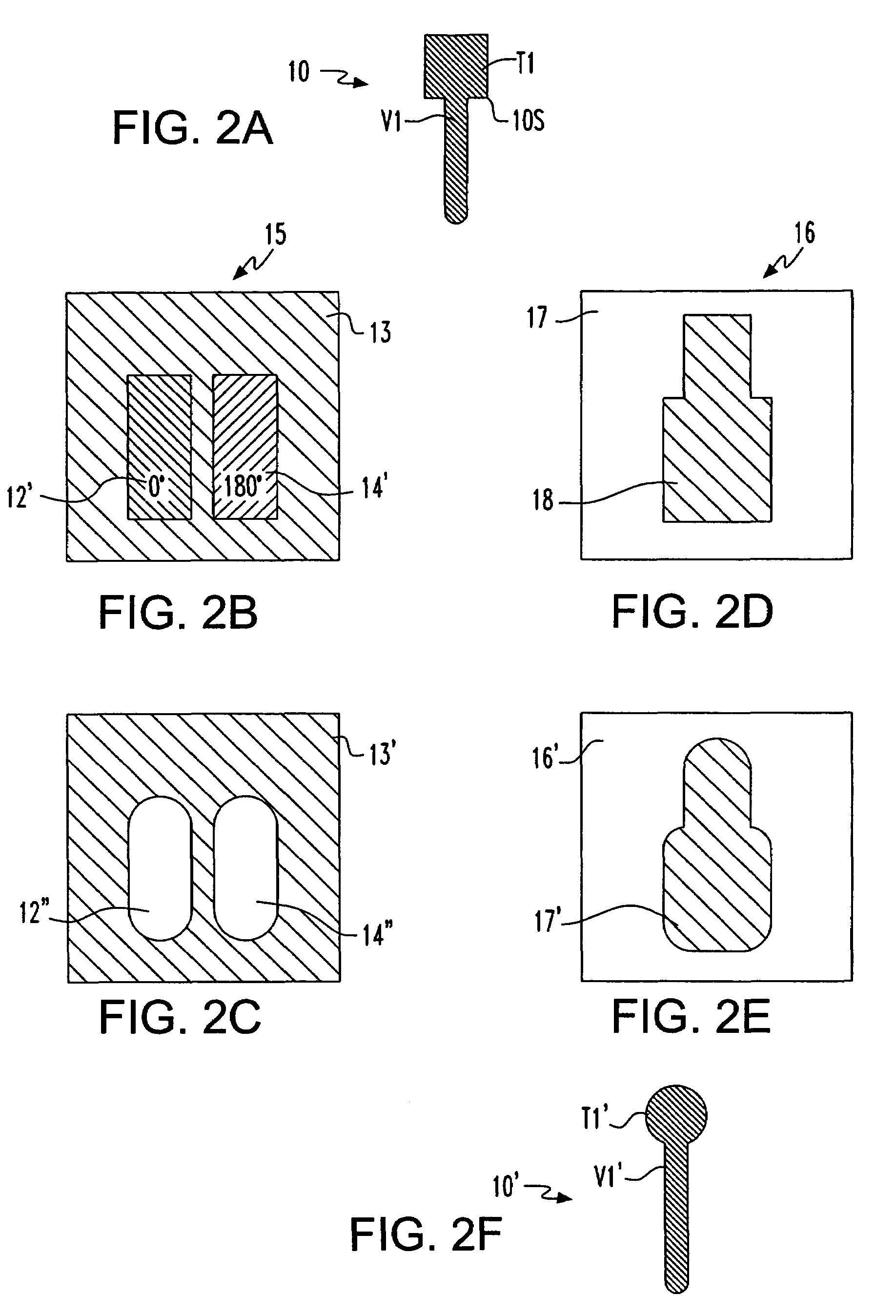Generating mask patterns for alternating phase-shift mask lithography
a phase shift mask and pattern technology, applied in the field of photolithographic methods, can solve the problems of increasing complexity of resolution enhancement techniques, increasing difficulty in lithographic patterning, and one of the fundamental limitations of high-na lithography, and the rapid loss of dof in relation to na
- Summary
- Abstract
- Description
- Claims
- Application Information
AI Technical Summary
Benefits of technology
Problems solved by technology
Method used
Image
Examples
Embodiment Construction
[0064]FIG. 12 is a flowchart illustrating an embodiment of the present invention. As indicated above, it is desirable to improve the process and flow for generating the patterns of a pair of an alternating phase-shifting mask (altPSM) and block (trim) mask used together in a dual exposure lithography method. It is desirable to generate pairs of altPSM and trim masks from input circuit layout data in a way that lithographically optimized and logically correct exposure patterns can be produced on a wafer. In furtherance of these goals, and towards reducing the time and processor resources required to generate patterns for such mask pairs, in an embodiment of the invention, an approach is provided for defining all parameters of the block (trim) mask only as a function of the primary circuit layout. Thereafter, parameters of the phase shape patterns are defined as a function of both the primary circuit layout, as well as the block mask patterns.
[0065]In the embodiment shown in FIG. 12, ...
PUM
| Property | Measurement | Unit |
|---|---|---|
| half wavelengths | aaaaa | aaaaa |
| wavelength | aaaaa | aaaaa |
| diffracted angle | aaaaa | aaaaa |
Abstract
Description
Claims
Application Information
 Login to View More
Login to View More - R&D
- Intellectual Property
- Life Sciences
- Materials
- Tech Scout
- Unparalleled Data Quality
- Higher Quality Content
- 60% Fewer Hallucinations
Browse by: Latest US Patents, China's latest patents, Technical Efficacy Thesaurus, Application Domain, Technology Topic, Popular Technical Reports.
© 2025 PatSnap. All rights reserved.Legal|Privacy policy|Modern Slavery Act Transparency Statement|Sitemap|About US| Contact US: help@patsnap.com



